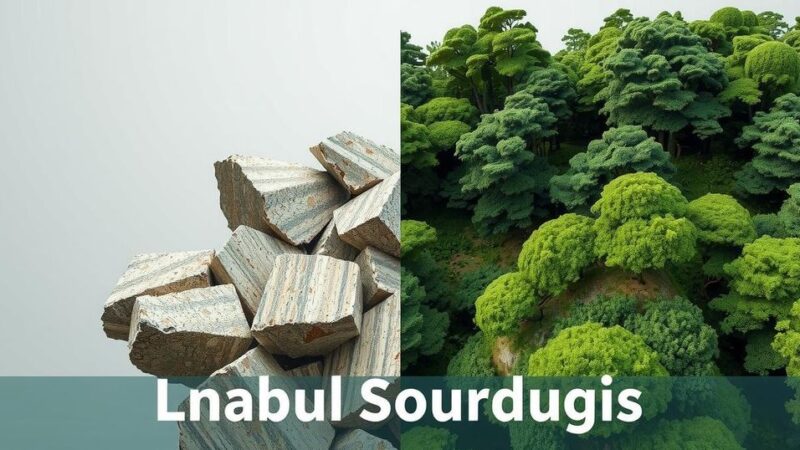Belgium has opened an investigation into Apple regarding allegations that the company sourced ‘blood minerals’ from illegal mines in the DRC, linked to conflict and human rights abuses. DRC lawyers accuse Apple of illegally obtaining these minerals, despite the company’s claims of sourcing from conflict-free areas. The issue raises concerns about corporate responsibility and the EU’s complicity in regional conflicts due to recent agreements with Rwanda.
Belgium has initiated an investigation concerning Apple’s alleged procurement of ‘blood minerals’ from the Democratic Republic of Congo (DRC). This comes after DRC lawyers filed complaints against Apple subsidiaries in Belgium and France last December, accusing the corporation of acquiring minerals affiliated with conflicts, including tantalum, tin, and gold from illicit mining operations, which have been linked to child labor and environmental destruction.
Apple contends that it verifies the origins of its minerals to ensure they are sourced from non-conflict regions or Rwanda. However, the DRC claims that these minerals ultimately trace back to illegal mines in eastern Congo, suggesting that they are laundered to be legally integrated into the supply chain.
The investigation has been spurred by reports indicating that many of these illicit mines are controlled by M23 rebels, who unlawfully tax mining activities and export minerals. These operations reportedly undermine the global supply chain, according to a recent United Nations report. DRC lawyers express concern that Apple knowingly sourced from these rebels, a charge which Apple has consistently denied.
Recently, Apple instructed its suppliers to cease sourcing minerals from the DRC and Rwanda, indicating its frustration with the reliability of auditing and certification mechanisms in these areas. As Belgium pursues the investigation, DRC remains pending a decision regarding its complaint in France.
Lawyers representing DRC have also reached out to European Commission President Ursula von der Leyen over this matter, indicating broader implications regarding EU actions. Critics highlight that a recent agreement with Rwanda to boost its sustainable mineral programs may inadvertently escalate existing conflicts due to the questionable presence of minerals in Rwanda.
In summarizing these allegations, legal representatives emphasized that both Apple and the EU are implicated in misleading narratives concerning the mineral supply chains, raising profound concerns regarding human rights violations and corporate ethics.
The controversy surrounding the sourcing of minerals from the DRC is deeply intertwined with issues of conflict and human rights. ‘Blood minerals’ refers to minerals extracted under conditions that promote violence, exploitation, and environmental degradation. The DRC has long faced challenges stemming from the illegal mining activities frequently linked to armed groups, which reinforce cycles of violence and economic instability. Following international scrutiny, corporations are increasingly held to account for their supply chains, with legislative frameworks emerging to guide responsible sourcing. Allegations against multinational companies like Apple raise critical questions about due diligence practices in obtaining conflict minerals.
The initiation of the investigation by Belgium into Apple’s practices highlights the increasing global scrutiny of corporations sourcing materials from conflict-affected areas. Allegations against Apple regarding the procurement of ‘blood minerals’ underscore the complexity and ethical challenges inherent in the global supply chain. The EU’s engagement with Rwanda further complicates the issue, raising questions about the sustainability and legality of mineral sourcing in regions affected by conflict and human rights abuses.
Original Source: www.belganewsagency.eu







